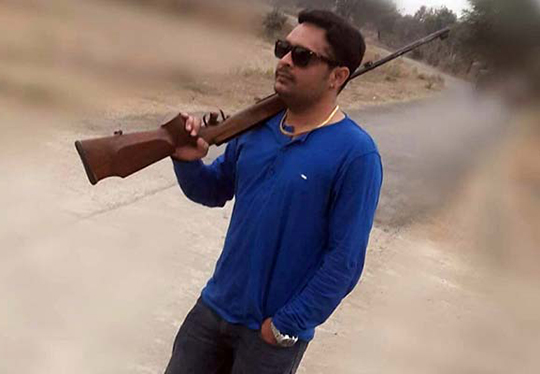Mahasamund, Oct 18: A BJP leader's son and his two friends have been arrested in Chhattisgarh for the alleged gang-rape of a woman inside a moving car last week.

The 36-year-old woman was assaulted last Tuesday in the Mahasamund district, some 75 km from state capital Raipur.
The police say the woman was taken away from behind her house on Tuesday night. She was with her sister when the accused men, Devendra, Farid Ali and Prince Saluja allegedly drove up and forced her into their car.
The three allegedly raped the woman and also filmed her, threatening to post the clip online if she went to the police.
The woman complained to the police the next day. All three have been arrested and charged with gang-rape and criminal intimidation.
"The incident shows depraved mentality. The punishment for such people should be an example," said Chief Minister Raman Singh, who heads the state's BJP government.
Prince Saluja, whose father once held a BJP post at the sub-district level, was missing for hours until he was caught today. In various photos that have surfaced in the media, Prince is seen pointing at his SUV or holding a rifle.





Comments
Finest product from RSS.
\Godown main hi gadbad hain tho showroom main aisahi piece niklega\""
send him to SAUDI....
islamic law will give freedom from this world for rape and murder....
Pls dont link this issue to BJP as it has nothing to do with it. Crime done by the son of Leader is his own decision. BJP is free from all types of crimes/ goondagiri etc.
i am sure he is not going to get any punishment because the central govt is ruled by bjp
No wonder.This is the real face of sanghi and its affiliated fringe elements.Muh me Rama dil me Kama
Add new comment